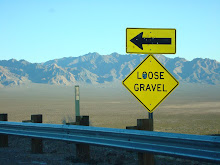NASA's vision lost on Web generation
From CNN.com
CAPE CANAVERAL, Florida (AP) -- Young Americans have high levels of apathy about NASA's new vision of sending astronauts back to the moon by 2017 and eventually on to Mars, recent surveys show.
Concerned about this lack of interest, NASA's image-makers are taking a hard look at how to win over the young generation -- media-saturated teens and 20-somethings growing up on YouTube and Google and largely indifferent to manned space flight.
"If you're going to do a space exploration program that lasts 40 years, if you just do the math, those are the guys that are going to carry the tax burden," said Mary Lynne Dittmar, president of a Houston company that surveyed young people about the space program.
The 2004 and 2006 surveys by Dittmar Associates Inc. revealed high levels of indifference among 18- to 25-year-olds toward manned trips to the moon and Mars.
I'm gonna have to agree, as one of these "20-somethings".
The night Discovery launched and I saw it pass through the sky, I ended up at a bonfire hosted by a friend, with 25-30 people around my age. since I thought seeing the Shuttle was the coolest thing I'd seen in a while, I naturally told everyone about it. The vast majority of them looked at me as if I was crazy. I had never noticed it before, but by and large, it's true. Most people in my age bracket really could care less.
Damn kids.....tsk!
I must, however, disagree with George Whitesides, executive director of the National Space Society, a space advocacy group, who feels Hollywood could be the answer.
"The American public engages with issues through people, personalities, celebrities, whatever. When you don't have that kind of personality, or face, or faces associated with your issue, it's a little bit harder for the public to connect."
Less Hollywood in everything would be better in my book. The last thing I want to see is Paris Hilton telling me "We're, like, totally going back to the moon."
CAPE CANAVERAL, Florida (AP) -- Young Americans have high levels of apathy about NASA's new vision of sending astronauts back to the moon by 2017 and eventually on to Mars, recent surveys show.
Concerned about this lack of interest, NASA's image-makers are taking a hard look at how to win over the young generation -- media-saturated teens and 20-somethings growing up on YouTube and Google and largely indifferent to manned space flight.
"If you're going to do a space exploration program that lasts 40 years, if you just do the math, those are the guys that are going to carry the tax burden," said Mary Lynne Dittmar, president of a Houston company that surveyed young people about the space program.
The 2004 and 2006 surveys by Dittmar Associates Inc. revealed high levels of indifference among 18- to 25-year-olds toward manned trips to the moon and Mars.
I'm gonna have to agree, as one of these "20-somethings".
The night Discovery launched and I saw it pass through the sky, I ended up at a bonfire hosted by a friend, with 25-30 people around my age. since I thought seeing the Shuttle was the coolest thing I'd seen in a while, I naturally told everyone about it. The vast majority of them looked at me as if I was crazy. I had never noticed it before, but by and large, it's true. Most people in my age bracket really could care less.
Damn kids.....tsk!
I must, however, disagree with George Whitesides, executive director of the National Space Society, a space advocacy group, who feels Hollywood could be the answer.
"The American public engages with issues through people, personalities, celebrities, whatever. When you don't have that kind of personality, or face, or faces associated with your issue, it's a little bit harder for the public to connect."
Less Hollywood in everything would be better in my book. The last thing I want to see is Paris Hilton telling me "We're, like, totally going back to the moon."


0 Comments:
Post a Comment
Subscribe to Post Comments [Atom]
<< Home